Your Guide to the Mediterranean Diet for a Longer, Healthier Life

The Mediterranean diet is touted as one of the world’s healthiest diets. Abundant in fruits, vegetables, whole grains, legumes, olive oil, and lean sources of protein, this healthy eating plan is based on typical foods and recipes of Mediterranean-style cooking.
While we are never ones to advocate specific “diets,” the Mediterranean-style diet is simply a way of eating and a great example of how you can make well-balanced food choices that taste great, boost your health, and even promote weight loss.
Here, we’ll look at the benefits of a Mediterranean diet, the key foods to eat, and a few tips for incorporating it into your daily routine.
Health Benefits of the Mediterranean Diet
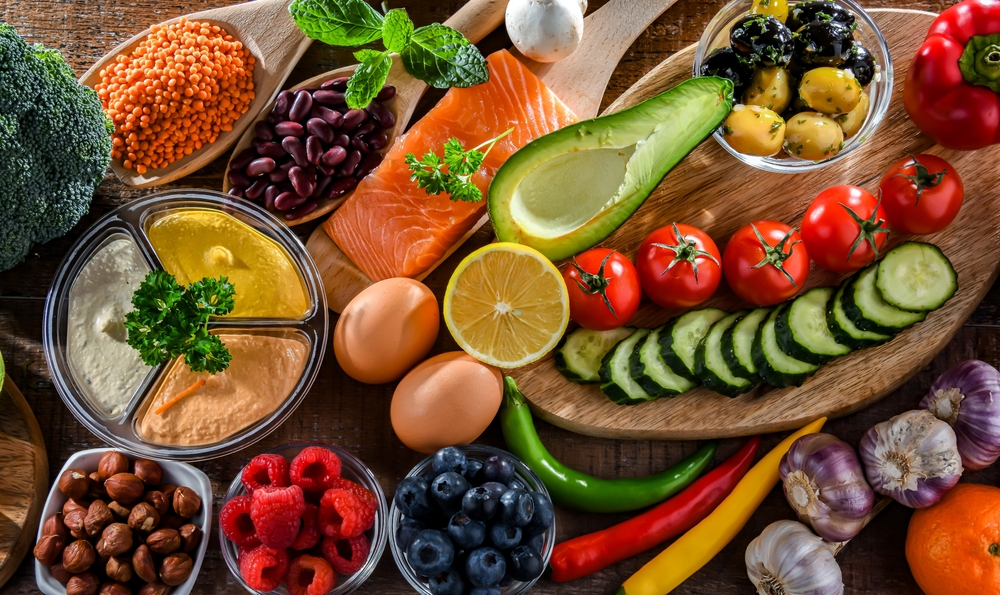
Photo Credit: Shutterstock
Research has shown plenty of health benefits associated with the Mediterranean diet, such as:
- Reduces levels of inflammation
- Lowers your risk of cardiovascular disease, including heart attack or stroke
- Promotes healthier blood sugar and cholesterol levels
- Lowers blood pressure
- Improves your gut health
- Lowers the risk of certain types of cancers
- Aids in weight loss
- Supports healthy brain function as you age
- Helps you live longer
These benefits stem from the various nutrients included in the Mediterranean diet. No single food is responsible for all of the health benefits—instead, it’s a combination of different nutrients such as fiber, healthy fats, and antioxidants. This diet also limits your intake of unhealthy fats, sodium, sugar, and refined carbs.
Next, we’ll look at the main food staples included in the Mediterranean diet.
Choose Healthy Fats
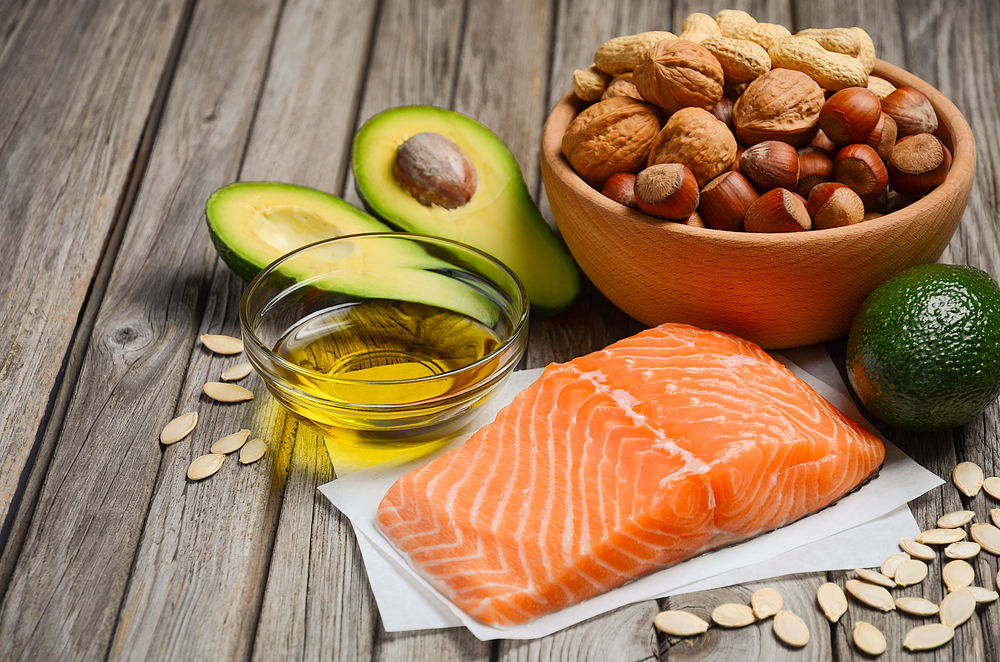
Photo Credit: Shutterstock
Believe it or not, the fatty foods we feared for so long can actually provide a number of health benefits!
Healthy fats help balance your hormones, speed up your metabolism, boost energy, shut down cravings, keep cholesterol levels and blood pressure under control, and even reverse heart disease.
The Mediterranean diet includes olive oil as the primary fat (1 to 4 servings per day), replacing other oils and fats such as butter or margarine.
Other foods containing healthy fats include:
- Avocados
- Nuts (especially walnuts)
- Oily fish such as salmon and sardines
For a complete guide on healthy fats, check out The Best Healthy Fats for Weight Loss.
Aim for Two Servings of Fish Per Week

Photo Credit: Shutterstock
Fish is the preferred animal protein in the Mediterranean diet, and you should aim to eat 2 to 3 servings per week (4 ounces).
Aim for fish rich in omega-3s (healthy fats), which include:
- Salmon
- Sardines
- Herring
- Tuna
- Mackerel
You can also eat poultry in moderation, but limit red meat to occasional consumption.
Incorporate Lots of Fruits and Vegetables

Photo Credit: Shutterstock
Fruits and veggies are a main staple of the Mediterranean diet because of their essential vitamins, minerals, antioxidants, and fiber.
Try to add vegetables to every meal, including:
- Tomatoes
- Broccoli, kale, and spinach
- Onions
- Cauliflower
- Carrots
- Brussel Sprouts
- Cucumbers
- Potatoes and sweet potatoes
And include these fruits, too:
- Bananas
- Apples
- Oranges
- Pears
- Strawberries
- Grapes
- Dates
- Figs
- Melons
- Peaches
Eat Plenty of Nuts and Seeds

Photo Credit: Shutterstock
Instead of reaching for a processed snack, grab a handful of one of the recommended nuts or seeds, which include plenty of fiber and healthy fats:
- Almonds
- Walnuts
- Macadamia nuts
- Hazelnuts
- Cashews
- Sunflower seeds
- Pumpkin seeds
You can also include nut butter, such as almond butter and peanut butter.
Add Some Weekly Legumes
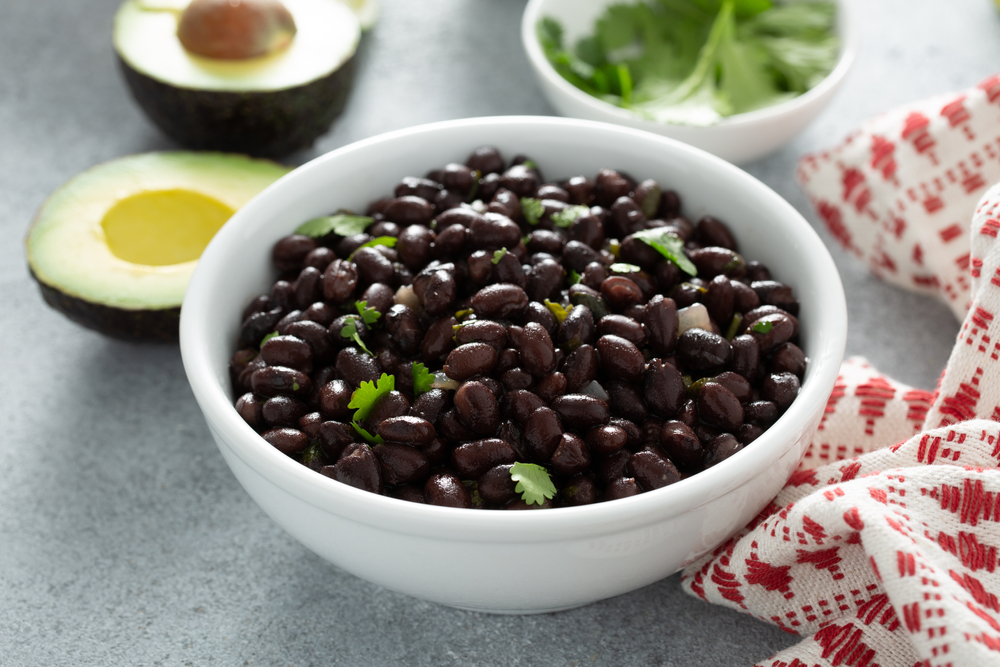
Photo Credit: Shutterstock
Legumes pack plenty of nutrients, including fiber, protein, B vitamins, iron, copper, magnesium, manganese, zinc, and phosphorous. They are naturally low in fat and free of saturated fat and cholesterol.
Aim for at least three servings per week by incorporating the following:
- Beans
- Lentils
- Peas
- Chickpeas
- Peanuts
Include Daily Servings of Whole Grains
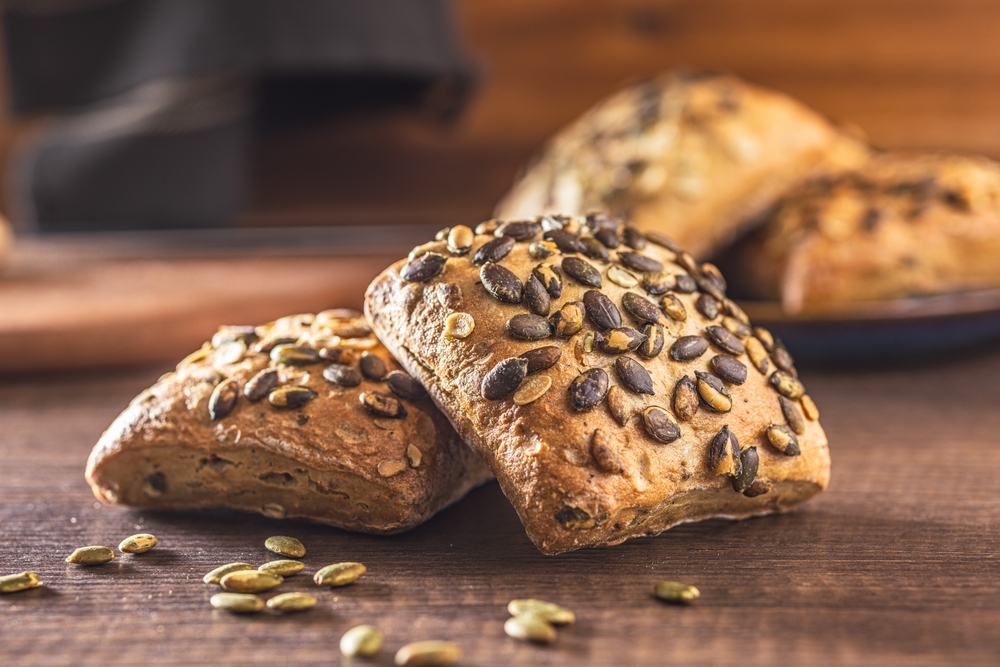
Photo Credit: Shutterstock
Whole grains are a great source of fiber and healthy fats, which slow digestion and cause smaller spikes and dips in blood sugar. The nutrients in whole grains also promote gut health and lower the risk of cardiovascular disease and Type 2 diabetes.
Some of the best sources of whole grains include:
- Oats
- Brown rice
- Barley
- Whole wheat bread and pasta
- Rye
- Buckwheat
- Couscous
Keep Dairy to Moderate Amounts
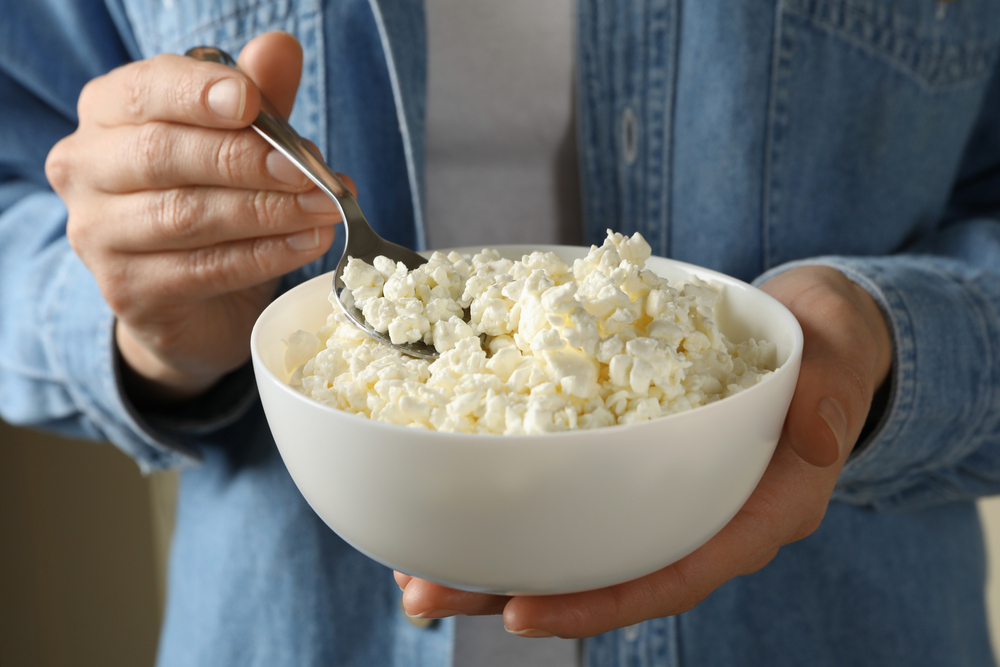
Photo Credit: Shutterstock
Instead of higher-saturated-fat dairy sources such as heavy cream or processed cheese, aim for the following:
- Unprocessed cheeses like feta, Brie, cotija, Swiss, ricotta, manchego, and Parmesan
- Plain yogurt and Greek yogurt
Try to limit yogurts that contain a lot of added sugar.
If You Feel Like a Drink, Stick With Wine

Photo Credit: Shutterstock
Moderate wine drinking is part of the Mediterranean diet when combined with plenty of fruits, veggies, and healthy fats.
Research suggests that moderate wine drinking increases longevity, reduces the risk of cardiovascular diseases, and does not significantly influence the overall risk of cancer.
That said, if you are not a drinker, there’s no need to start! But if you prefer a drink, stick to wine with dinner. Limit wine to two glasses per day for men and one glass per day for women.
Mediterranean Diet: The Takeaway
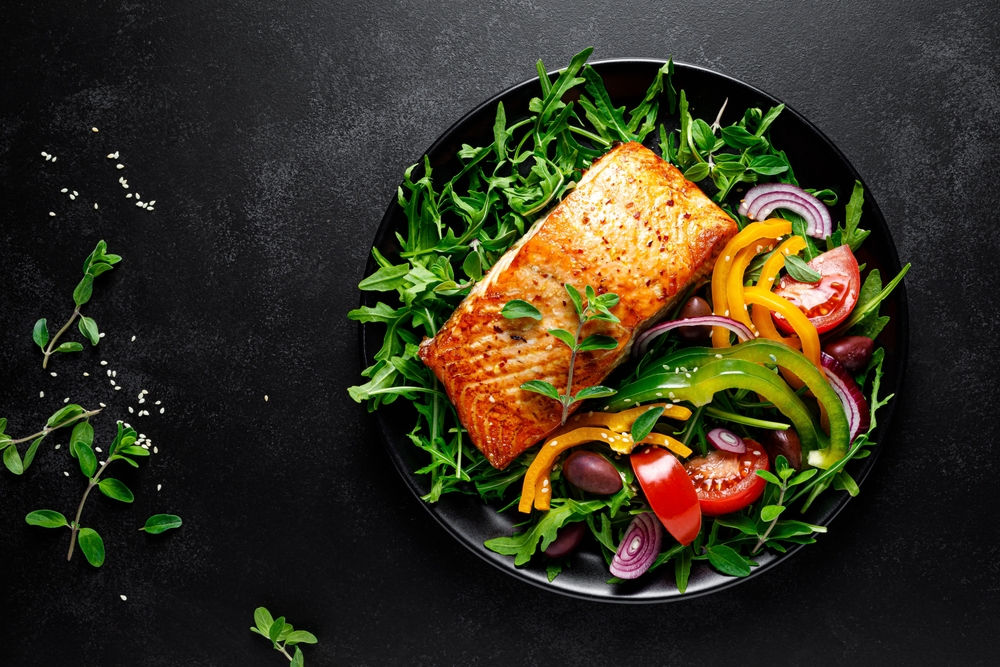
Photo Credit: Shutterstock
To start incorporating a Mediterranean-style pattern of eating, stick to these key guidelines:
- Daily: Eat vegetables, fruits, whole grains, and healthy fats
- Weekly: Have fish, poultry, beans, legumes, and eggs
- Stick to moderate portions of dairy products
- Limit red meat, refined carbohydrates, and sugar
Here are a few tips to help you get started:
- Drink plenty of water.
- Switch out butter for olive oil when sautéing your food.
- Opt for whole grains over refined bread and pasta.
- Incorporate more fruits and vegetables into your day by replacing typical snacks with them.
- Substitute fish for red meat in your meals a couple of times a week.
- Switch high-fat dairy with skim or 1 percent milk.
- Make small swaps, such as switching mayonnaise for hummus spread in your sandwich or substituting crackers and chips for celery, carrots, or pepper strips.
- Try swapping white rice for quinoa or hamburgers for turkey or salmon burgers.
You can make simple changes over time to make the diet less like a challenge and more like a lifestyle!
